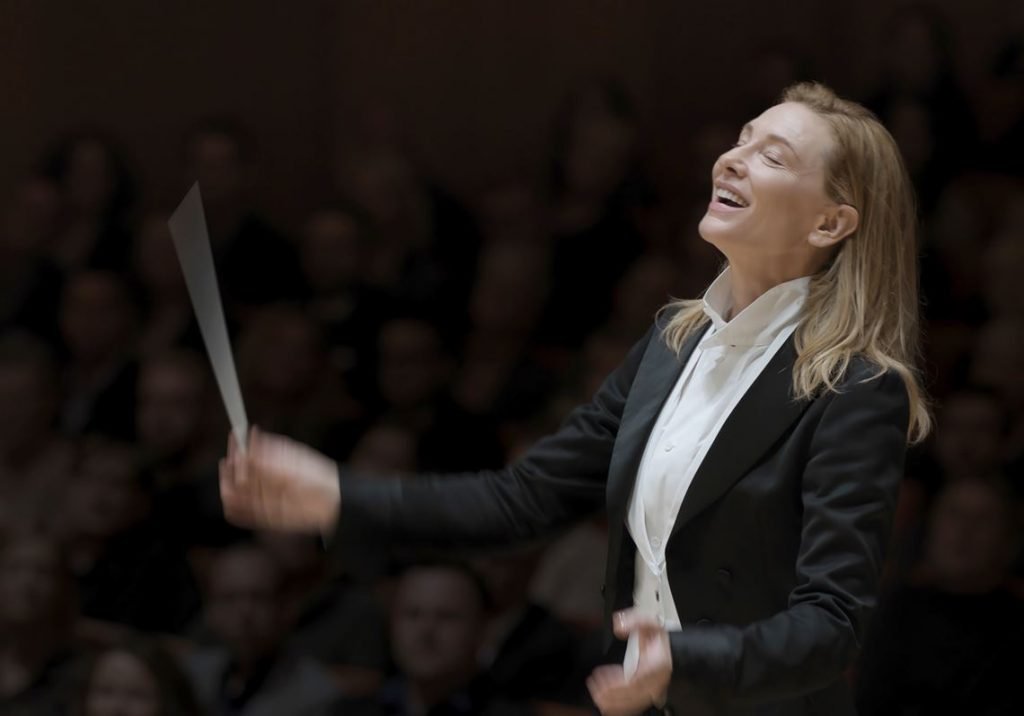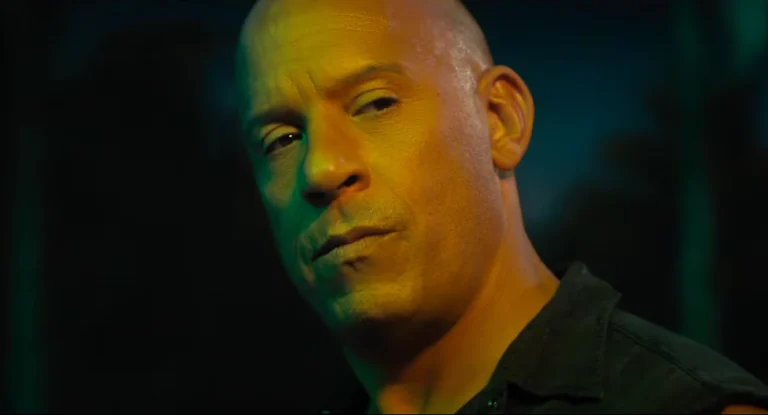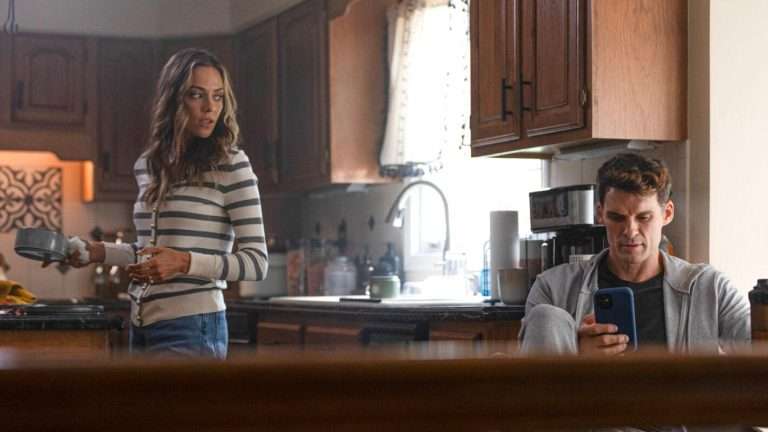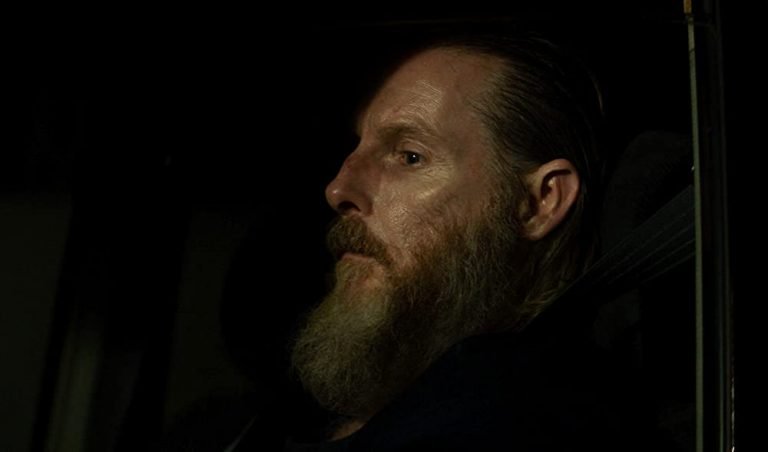Tár (2022) Movie Ending Explained: Todd Field’s latest masterpiece Tár has been making waves since its premiere at the Venice Film Festival, during which it competed for the coveted Golden Lion after receiving a six-minute standing ovation. Critics and audiences alike have lauded the film for Field’s direction and puzzling screenplay, its dynamic use of long takes, and, of course, the towering lead performance from Cate Blanchett. Though a fictional story, Field creates an uncomfortably realistic portrait of a world-renowned artist amid a fall from grace.
In the world of classical music, Lydia Tár is the voice of her generation. She treats her craft with the utmost severity and holds her entire world in the palm of her hand. But as the old saying goes, “the bigger they are, the harder they fall.” With Lydia on the verge of a career milestone, unforgivable mistakes from her past are sure to come back and haunt her, sending her down a swift slope of allegations, depositions, and alienation. But before we can discuss exactly what she did or what becomes of her, let’s take a deeper look at who she is.
Who is Lydia Tár?
The film opens as Lydia Tár is interviewed by Adam Gopnik of The New Yorker in front of a packed house. Gopnik begins by reading a summary of her accomplishments, which include serving as the conductor for orchestras in Cleveland, Boston, and now Berlin; opening a fellowship for aspiring women conductors; and earning the prestigious distinction of the EGOT (she’s won an Emmy, Grammy, Oscar, and Tony). Lydia discusses her experiences as a protégé of Leonard Bernstein and how she has channeled the great composer’s teachings into her work. In addition to promoting her new book, she also encourages her upcoming live recording of Gustav Mahler’s Symphony No. 5, which will fulfill her mission to conduct all ten of Mahler’s symphonies. Gopnik and the audience are taken in by her performance style and matter-of-fact manner of speaking. The journalist asks her about the kind of pressure she feels and the barriers she’s broken as a woman who has risen to the highest level in a field typically dominated by men, to which Lydia responds that she feels no such pressure.
While in New York with her personal assistant, Francesca (Noémie Merlant), Lydia meets with Elliot Kaplan (Mark Strong), a fellow conductor and the business manager of her fellowship program. The two discuss changes she intends to make to her orchestra at the Berlin Philharmonic, which include filling a vacant cellist position and firing her assistant conductor, Sebastian (Allan Corduner). It is implied that she intends to replace him with Francesca. During this time, she also makes a guest appearance in a conducting class at Juilliard, during which she admonishes a young graduate student who refuses to take an interest in classical composers like Bach due to their long histories of misogyny and racism. Lydia does not believe identity politics are a suitable enough reason not to give such revered musicians their due credit and verbally humiliates the student, causing him to leave abruptly after cursing her out.
Upon returning to her luxurious flat in Berlin, Lydia is greeted by her wife, Sharon (Nina Hoss), who serves as the principal violinist of her orchestra, and their adopted daughter, Petra. Lydia’s celebrity status and influence are underscored when Petra tells her of a girl who has been bullying her at school, causing Lydia to threaten the girl if she does not leave Petra alone, to which she hastily complies. Lydia is abrasive and self-righteous, to say the least, but she garners respect when she needs to. However, this respect is tested upon her return to Berlin after she begins to receive strange gifts and messages from a former student, Krista Taylor (Sylvia Flote).
Who is Krista Taylor?
Dream sequences, vague recollections, and a brief glimpse at past emails reveal Krista Taylor as a former student in Lydia’s fellowship program. Krista is never shown on screen or through flashbacks, but it is heavily suggested that she was a victim of grooming and sexual harassment on the part of Lydia. When Krista denied Lydia’s advances and inappropriate behavior, she was done in by Lydia’s power and blacklisted by other conductors, who were led to believe she suffered from severe mental illness. The film’s present narrative depicts Lydia as the recipient of strange gifts and messages from Krista, which include a copy of the novel Challenge by Vita Sackville-West. As the film occasionally cuts to shots of a woman covered in a sweatshirt hood, it is also implied that Krista has been stalking Lydia in the wake of her career ending.
Has Lydia’s Behavior Changed at All?
Though Lydia is troubled by premonitions of Krista and begins to notice cryptic drawings around her flat that Krista had once made, she presses on with preparations for Mahler’s 5th. As auditions for a new cellist begin, Lydia meets one such auditionee, Olga Metkina (Sophie Kauer), a young and beautiful woman to whom she is instantly attracted, much to the dismay of both Sharon and Francesca. Lydia deliberately alters her judging remarks in favor of Olga and, upon allowing her into the ensemble, grants her a solo on the symphony’s companion piece. The rest of the orchestra is puzzled by this decision due to the higher standing and more significant experience of the senior cellist, Lina (Lydia Schamschula).
As Lydia begins to grow closer to Olga, she informs Sebastian that he will be replaced as the assistant conductor. He does not respond well to the news, taking the opportunity to inform her that the orchestra is well aware of her favoritism. Sebastian infers that Francesca will likely replace him and that such a decision will expose Lydia’s abusive behavior towards the women in her life. When he speculates that the two are having an affair, Lydia later informs Francesca that she has decided to give the job to someone else.
How Does Lydia’s Fall from Grace Begin?
A distraught Francesca approaches Lydia to inform her that Krista has committed suicide. Having been close with Francesca prior to her death, as they had both been members of Lydia’s fellowship program, Krista appears to have sent Francesca her suicide note via email, in which she makes incriminating allegations about Lydia’s behavior and character. Lydia attempts to cover up her responsibility for Krista’s actions by deleting all of their emails and messaging history. She encourages Francesca to do the same, though she eventually discovers that she has not done so, which plays an additional role in her decision not to promote her. Francesca soon resigns from her employment and disappears, but not before she leaks her messages with Krista to her bereaved parents, who plan to sue Lydia.
Lydia retains a lawyer as proceedings, and various depositions begin regarding her history with Krista. During this time, her visions of Krista begin to increase, with the cryptic drawings making frequent appearances. Lydia is additionally troubled by a decline in her health, which leaves her in chronic pain and with increased sensitivity to disruptions from her neighbor. She seeks solace in Olga, which further strains her marriage to Sharon. After driving Olga home from a rehearsal for her solo, Lydia follows her cellist into the deteriorating apartment building she appears to live in. After making her way into the building’s basement, she is disturbed by the dark corridors, flooded floors, and a nearby guard dog. Racing out, she trips on a cement step and injures her face. She brushes it off to her ensemble, and to Sharon, as a mugging incident.
Things only get worse for Lydia when an out-of-context recording of her Juilliard class, which is edited to appear as if she is making racially- and sexually-motivated insults against her student, goes viral on social media. While traveling to New York with Olga for a book tour, Lydia also faces another deposition, during which the details of Francesca’s messages with Krista are gradually uncovered. Elliot ends their partnership shortly thereafter, while Olga grows increasingly distant from Lydia. Upon returning to Berlin, Sharon leaves Lydia and denies her contact with Petra, furious that she was not more forthcoming about the allegations and that she did not seek counsel from her.
Tár: Ending Explained — What is Next for Lydia?
Lydia is removed as conductor of Mahler’s 5th, but not before she storms the stage just as the recording begins and attacks Elliot, who has been hired to replace her. Tackling him off his podium, she criticizes him for going behind her back and insists that the performance is still hers before being escorted off the stage, much to the shock of the orchestra and the audience.
In the aftermath of these events, Lydia meets with a crisis management team, who advises her to stay low and out of public view. As a result, she returns to her childhood home on Staten Island. Venturing into her bedroom, she finds and watches old VHS recordings of Leonard Bernstein concerts, ruminating over her life’s sharp turn. Trophies and certifications from her school days revealed that her birth name is Linda Tarr. Her brother returns to the house, unsurprised to see her and to respond coldly to her presence.
Sometime later, Lydia relocated to an unspecified country in Southeast Asia, where she began work as a conductor for a new orchestra. Her hosts greet her warmly and recommend a nearby massage parlor to her. Upon being given the choice of her massage therapist, and seeing that her choices are sitting in an arrangement similar to her orchestra, she becomes visibly uncomfortable before leaving the parlor to throw up.
As the opening night for her next concert approaches, she takes the stage with her orchestra resting in front of an elaborate series of video screens. As the music begins, the camera cuts to a packed audience of cosplayers in extravagant costumes, revealing that her work has not been for another philharmonic but rather that she has been reduced to conducting a live concert for the video game series Monster Hunter.







![Badhaai Do [2022] – Ending and Themes Explained](https://79468c92.delivery.rocketcdn.me/wp-content/uploads/2022/02/Badhaai-Do-2022-768x432.jpeg)